In recent years, Decentralized Autonomous Organizations (DAOs) have emerged as a revolutionary concept within the digital landscape, fundamentally altering how organizations operate and make decisions. DAOs leverage blockchain technology to create a structure that is not only decentralized but also autonomous, allowing for collective decision-making without the need for a central authority. This shift has been fueled by the increasing adoption of cryptocurrencies and blockchain platforms, which provide the necessary infrastructure for these organizations to thrive.
The rise of DAOs can be attributed to a growing desire for more democratic and transparent forms of governance, particularly in an age where traditional institutions are often viewed with skepticism. The proliferation of DAOs has been particularly notable in the context of the cryptocurrency ecosystem. Projects like MakerDAO and Compound have demonstrated how DAOs can manage complex financial systems through community governance.
In these instances, token holders participate in decision-making processes, voting on proposals that affect the organization’s direction and policies. This model not only empowers individuals but also fosters a sense of ownership and responsibility among participants. As more people become disillusioned with conventional governance models, the appeal of DAOs continues to grow, suggesting a significant shift in how organizations might operate in the future.
Key Takeaways
- DAOs are gaining prominence in the digital age as a new form of organizational structure, allowing for decentralized decision-making and governance.
- DAOs have the potential to redefine democracy by enabling individuals to participate in decision-making processes without the need for traditional hierarchical structures.
- The impact of DAOs on traditional political structures is significant, as they challenge the centralized power of governments and institutions.
- DAOs have the potential to foster transparency and accountability by providing a platform for open and traceable decision-making processes.
- Despite their potential, DAOs face challenges and criticisms in democratizing decision-making, including concerns about security, scalability, and the potential for manipulation.
Redefining Democracy through Decentralized Autonomous Organizations
Empowering Members through Direct Participation
In contrast, DAOs distribute power among all members, allowing for a more direct form of participation. This model encourages active engagement from individuals who hold tokens, enabling them to propose changes, vote on initiatives, and influence the organization’s trajectory. The result is a more inclusive decision-making process that reflects the collective will of its members.
Overcoming Bureaucratic Inertia
Traditional political systems often suffer from bureaucratic inertia, where decision-making processes are slow and cumbersome. DAOs, on the other hand, can implement changes rapidly through smart contracts—self-executing contracts with the terms of the agreement directly written into code. This capability allows organizations to adapt quickly to changing circumstances or member preferences, fostering a dynamic environment that can better respond to the needs of its constituents.
Enhancing Democracy through Agility and Participation
As such, DAOs not only redefine democracy but also enhance its efficacy by making governance more agile and participatory. By empowering members and facilitating rapid decision-making, DAOs have the potential to create a more responsive and inclusive form of governance that truly represents the will of its members.
The Impact of DAOs on Traditional Political Structures

The emergence of DAOs poses significant implications for traditional political structures, potentially disrupting established norms and practices. One of the most profound impacts is the challenge to hierarchical power dynamics that have long characterized political institutions. In many democracies, power is often centralized within political parties or government bodies, leading to a disconnect between elected officials and the electorate.
DAOs disrupt this model by decentralizing authority and enabling direct participation from all members, thereby diminishing the influence of intermediaries. Furthermore, DAOs can serve as a catalyst for political innovation by introducing new mechanisms for civic engagement. For instance, they can facilitate participatory budgeting processes where community members vote on how to allocate resources within their organization or community.
This approach not only empowers individuals but also fosters a sense of accountability among participants, as they are directly involved in financial decision-making. As DAOs gain traction, they may inspire traditional political entities to adopt similar practices, leading to a more engaged citizenry and potentially revitalizing democratic processes.
The Potential of DAOs to Foster Transparency and Accountability
One of the most compelling advantages of DAOs is their inherent capacity for transparency and accountability. Built on blockchain technology, every transaction and decision made within a DAO is recorded on a public ledger that is immutable and accessible to all members. This level of transparency ensures that all actions taken by the organization are visible, reducing the likelihood of corruption or mismanagement.
Members can easily audit decisions and financial transactions, fostering trust within the community. Moreover, the accountability mechanisms embedded within DAOs further enhance their integrity. Smart contracts automate processes based on predefined rules, ensuring that decisions are executed as agreed upon by the community.
This reduces the potential for human error or manipulation, as actions are carried out automatically without the need for intermediaries. In this way, DAOs not only promote ethical governance but also empower members to hold one another accountable for their actions. As transparency and accountability become increasingly important in governance, DAOs offer a promising alternative to traditional organizational structures.
Challenges and Criticisms of DAOs in Democratizing Decision-Making
Despite their potential benefits, DAOs are not without challenges and criticisms when it comes to democratizing decision-making. One significant concern is the issue of accessibility and inclusivity. While blockchain technology enables participation from anyone with an internet connection, there remains a digital divide that can exclude marginalized communities from engaging in DAO governance.
Additionally, the technical knowledge required to navigate blockchain platforms can be a barrier for many individuals, limiting participation to those who are already familiar with cryptocurrency and decentralized technologies. Another criticism revolves around the potential for governance token concentration among a small group of individuals or entities. In some cases, early investors or developers may hold a disproportionate amount of tokens, granting them undue influence over decision-making processes.
This concentration can lead to scenarios where the interests of a few outweigh those of the broader community, undermining the democratic principles that DAOs aim to uphold. Addressing these challenges will be crucial for ensuring that DAOs fulfill their promise as equitable and inclusive governance structures.
The Future of Democracy: How DAOs Are Shaping a New Era of Governance

The Potential for Reimagined Democratic Processes
Their ability to facilitate direct participation and enhance transparency presents an opportunity to reimagine democratic processes in ways that were previously unimaginable. As more individuals become aware of the potential benefits of DAOs, we may witness an increasing demand for decentralized governance models across various sectors beyond cryptocurrency—such as non-profits, cooperatives, and even local governments.
Toward a More Engaged and Collaborative Citizenry
The integration of DAOs into mainstream governance could lead to a more engaged citizenry that actively participates in decision-making processes rather than passively accepting top-down directives. This shift could foster a culture of collaboration and innovation as communities come together to address shared challenges through collective action.
Realizing the Vision of DAOs in Governance
However, realizing this vision will require ongoing efforts to address existing barriers to participation and ensure that DAOs remain true to their democratic ideals. In conclusion, while challenges remain in fully realizing the potential of DAOs as vehicles for democratization, their rise signifies a critical moment in the evolution of governance. As technology continues to advance and societal expectations shift toward greater accountability and transparency, DAOs may well become integral components of future democratic frameworks—offering new pathways for civic engagement and reshaping our understanding of what it means to govern collectively in the digital age.




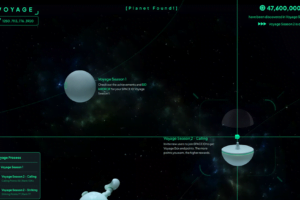
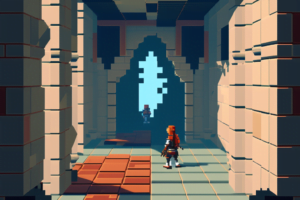
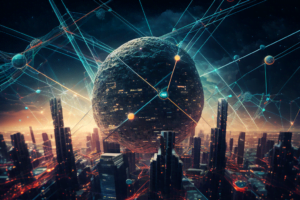

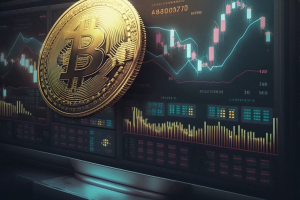
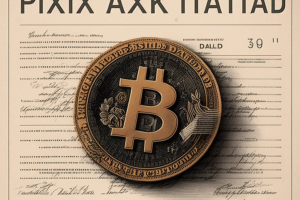


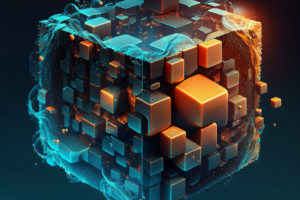
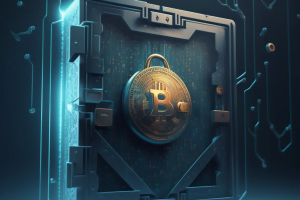
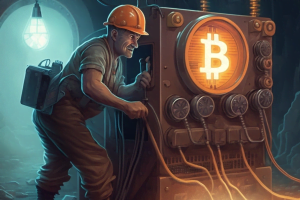
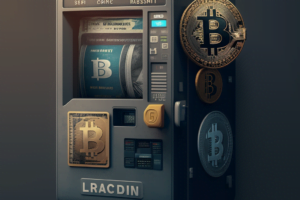
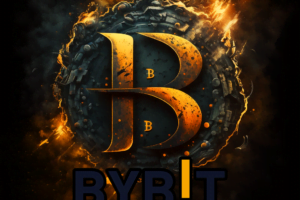
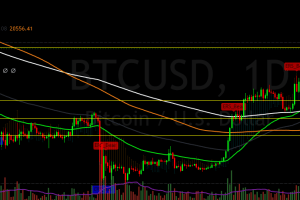




![StarsArena (StarShares): The Universe of Web3 Crypto Social Media! [Guide] starsarena](https://cryptos.us/wp-content/uploads/2023/10/starsarena.png)
